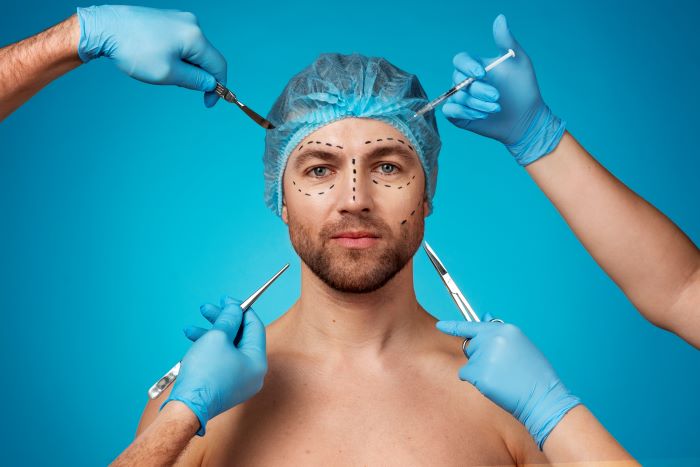Mommy Makeover Rancho Cucamonga: Redeem Your Pre-Baby Body with Tailored Treatments
Mommy Makeover Rancho Cucamonga: Redeem Your Pre-Baby Body with Tailored Treatments
Blog Article
Exploring the Mental and Social Aspects That Drive Individuals to Take Into Consideration Aesthetic Surgical Treatment as a way of Improvement
The decision to go after plastic surgery typically prolongs beyond plain visual appeals, linking with emotional and social characteristics that merit thorough examination. Elements such as self-worth, pervasive social elegance requirements, and the prevalent influence of social networks converge to shape specific inspirations for medical enhancement. As these influences come to be increasingly famous, comprehending the underlying emotional and cultural contexts is vital. What continues to be to be discovered is the profound impact these aspects have not just on personal identification yet additionally on broader societal norms and worths surrounding appeal and acceptance.
The Duty of Self-worth
Self-confidence dramatically affects a person's choice to pursue plastic surgery. Individuals with reduced self-worth commonly view themselves in a negative light, resulting in sensations of insufficiency concerning their physical look. This unfavorable self-perception can drive them to look for medical interventions as a technique of improving their self-image. The desire for enhancement in one's appearance is frequently linked to a belief that such changes will certainly elevate their total self-regard and self-confidence.

Eventually, the role of self-worth in the decision-making procedure concerning plastic surgery highlights the complex interaction between body picture, personal fulfillment, and psychological wellness. Recognizing this partnership is critical for medical care experts to make sure that patients are making notified choices rooted in sensible assumptions and psychological well-being.
Societal Charm Standards
Influenced by prevalent media portrayals and cultural stories, social beauty standards play a crucial duty fit people' assumptions of their very own bodies. These requirements are often characterized by an idyllic kind of beauty that stresses traits such as youthful vigor, slimness, and balance. As these suitables are bolstered via various networks, consisting of tv, film, and advertising, individuals frequently internalize these messages, bring about dissatisfaction with their all-natural look.
The implications of these social norms prolong beyond visual choices; they can impact self-esteem, mental health, and social relationships. People who view themselves as dropping short of these criteria might experience sensations of inadequacy, motivating a need for cosmetic surgical treatment as a way of achieving societal approval. This search is usually sustained by the belief that adapting these ideals will improve not only physical appearance but additionally social standing and individual fulfillment.

Impact of Social Network
The influence of social appeal requirements is additional enhanced by the increase of social media sites platforms, where curated images and idyllic representations of appeal are ubiquitous. Individuals are frequently subjected to filteringed system and modified photos, which often portray unattainable physical qualities. This exposure grows a society of contrast, leading individuals to evaluate their very own appearance against these typically impractical benchmarks.
Social network influencers and stars frequently promote aesthetic treatments, normalizing the notion that surgical enhancements are a practical methods for attaining societal ideals (plastic surgery rancho cucamonga). The exposure of these improvements can develop an understanding that going through cosmetic surgical treatment is a basic technique, thus affecting people to consider similar interventions as a pathway to enhanced self-esteem and social acceptance
In addition, the interactive nature of social networks allows for prompt feedback through likes and comments, better reinforcing the desire to satisfy preferred charm criteria. Such communications can aggravate feelings of insufficiency and drive people toward plastic surgery as a means of obtaining recognition. Inevitably, social media plays a crucial role in forming assumptions of appeal, which substantially influences the decision-making processes bordering plastic surgery.

Social Perspectives on Appearance
Across different cultures, understandings of appearance are deeply rooted in historical, social, and financial contexts, forming people' views on beauty and desirability. In numerous cultures, appearance functions as a significant marker of identity, affecting social condition, professional explanation chances, and personal connections. As an example, in some societies, light skin is often related to riches and privilege, while others might glorify darker complexion as signs of toughness and authenticity.
Moreover, conventional appeal criteria are often continued through cultural stories, media depictions, and family influences, resulting in differing suitables throughout various areas (plastic surgery rancho cucamonga). In Western societies, the emphasis on youth and physical conditioning usually drives people toward aesthetic enhancement, while in certain Eastern cultures, more refined changes lined up with traditional visual appeals may be favored
Globalization and the spreading of digital media have better made complex these characteristics, producing a hybridization of beauty perfects that goes beyond geographical borders. As people increasingly browse these social narratives, the stress to adapt to certain look standards can result in the need for cosmetic surgical treatment, mirroring a complicated interaction of social worths and individual ambitions. Comprehending these social perspectives is important in attending to the motivations behind cosmetic surgical treatment considerations.
Mental Effects of Aesthetic Surgical Treatment
Numerous people looking for plastic surgery report experiencing profound psychological impacts that can dramatically alter their self-perception and psychological health - plastic surgery rancho cucamonga. The wish for physical improvement typically comes from underlying issues such as reduced self-esteem, body dysmorphic problem, or social stress relating to appeal requirements. For some, the instant post-operative stage can lead to a short-term increase in positive self-image and contentment with their look, fostering a feeling of empowerment
Nonetheless, these positive sensations might not be withstanding. Study suggests that while some patients experience enhanced self-esteem, others may face increased anxiety or clinical depression if their expectations are not fulfilled. This disparity can arise from impractical perfects bolstered by media representation and cultural stories bordering beauty.
In addition, the mental ramifications of plastic surgery extend beyond the individual. Relationships with friends and family may be stressed as social dynamics change, causing feelings of isolation or alienation. Eventually, the emotional impacts of cosmetic surgical procedure are multifaceted and complex, requiring cautious factor to consider by both prospective clients wikipedia reference and doctor to make certain informed decision-making and realistic assumptions.
Conclusion
To conclude, the decision to seek cosmetic surgical procedure is substantially influenced by a combination of self-confidence issues, societal elegance criteria, and social viewpoints on look. The pervasive reach of social media even more exacerbates these pressures, promoting unrealistic perfects that individuals frequently make every effort to achieve. Comprehending these social and psychological variables is necessary for addressing the inspirations behind cosmetic surgical treatment, highlighting the demand for a more nuanced discussion bordering elegance and self-acceptance in contemporary society.
The decision to seek cosmetic surgical treatment commonly extends past mere aesthetic appeals, intertwining with emotional and social characteristics that warrant thorough evaluation. Inevitably, social media plays a pivotal role in forming understandings of appeal, which dramatically influences the decision-making procedures surrounding cosmetic surgery.
As people increasingly browse these social stories, the stress to adhere to particular look criteria can lead to the need for cosmetic surgical procedure, mirroring a complex interplay of personal goals and social values.In verdict, the choice to pursue cosmetic surgery is dramatically affected by a mix of self-confidence concerns, social elegance criteria, and cultural viewpoints on appearance. Understanding these social and mental factors is important for attending to the inspirations behind cosmetic surgical procedure, highlighting the click resources need for an extra nuanced conversation surrounding beauty and self-acceptance in modern society.
Report this page